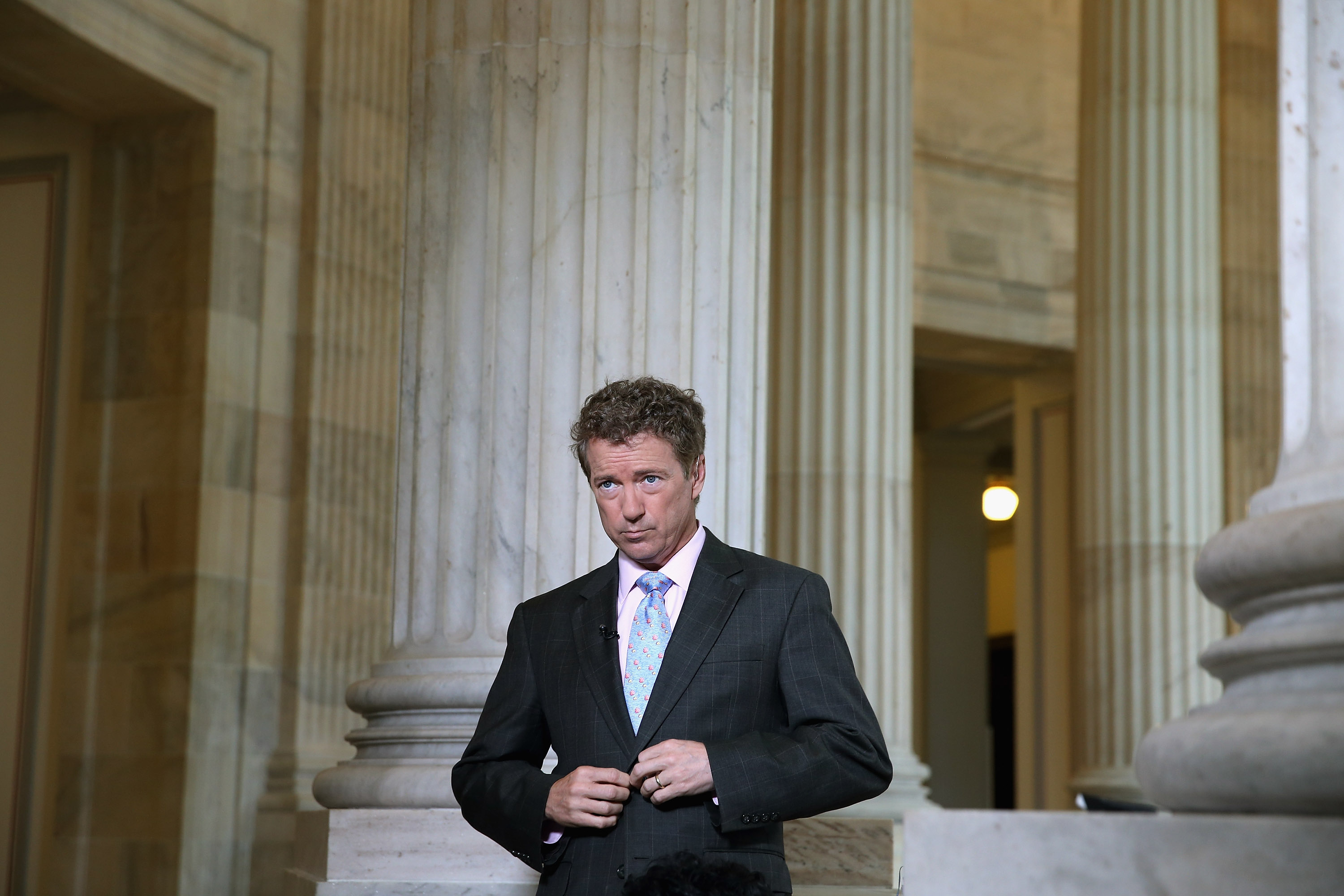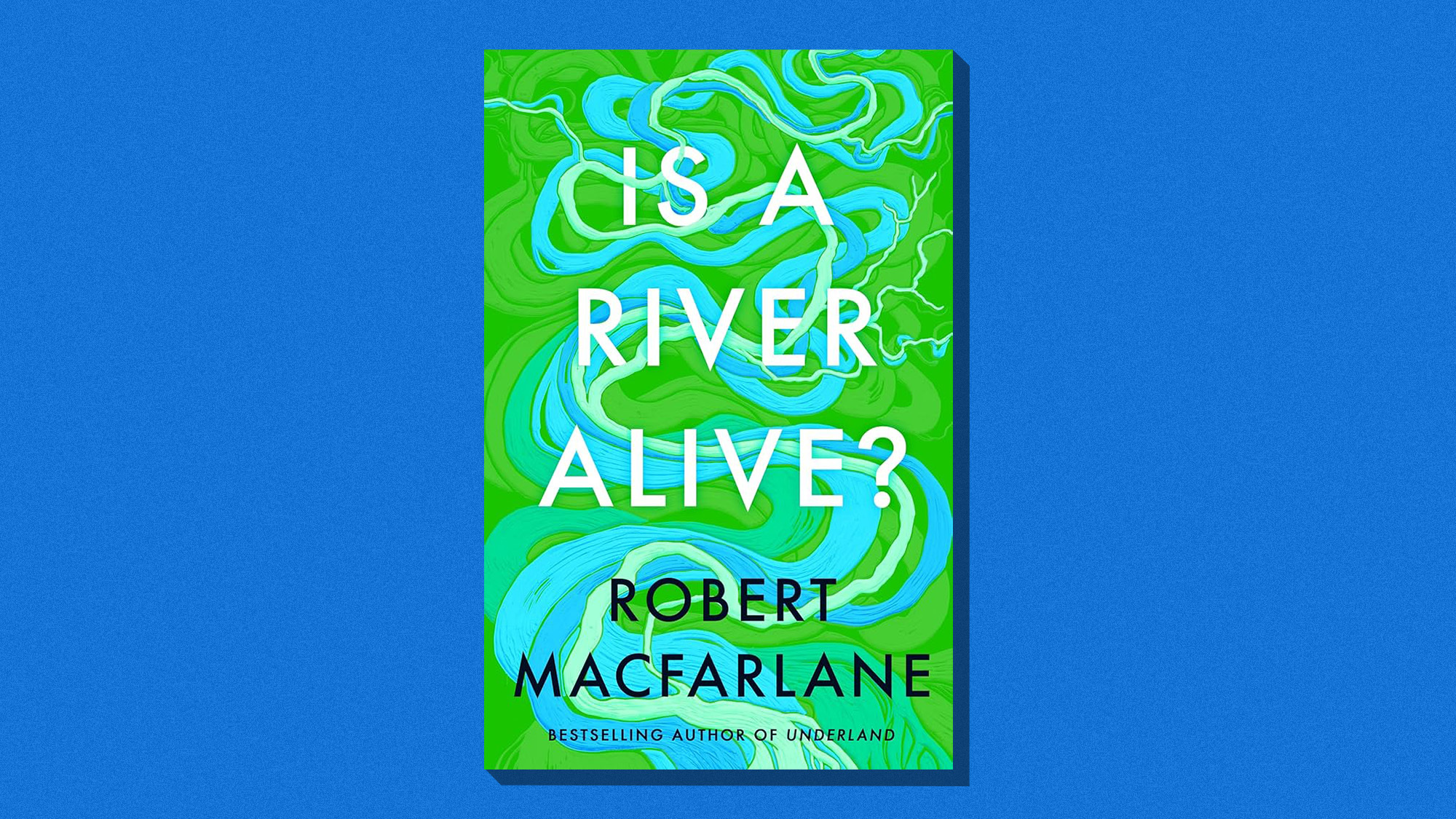Rand Paul's last, best chance is to run against Hillary the hawk
The dovish Paul is one of the few Republican candidates who presents a contrast to Clinton


When Rand Paul speaks on college campuses, he has a simple message: "I'm not here to send you to war."
Slumping in the polls and struggling to raise money, that's increasingly the raison d'etre of Paul's presidential campaign. In media interviews, he rails against a U.S.-enforced no-fly zone over Syria that has been proposed by both Hillary Clinton and Republican candidates like Chris Christie, arguing that it would repeat the blunder of Iraq and even risk a World War III involving a nuclear-armed Russia.
"I think it's the world's dumbest idea and a recipe for disaster, a recipe for war," Paul told the conservative Washington Times. And that's why, in spite of everything, he's still running.
Subscribe to The Week
Escape your echo chamber. Get the facts behind the news, plus analysis from multiple perspectives.

Sign up for The Week's Free Newsletters
From our morning news briefing to a weekly Good News Newsletter, get the best of The Week delivered directly to your inbox.
From our morning news briefing to a weekly Good News Newsletter, get the best of The Week delivered directly to your inbox.
"If I'm not in the race," Paul added, "that voice doesn't get heard. A lot of Americans are with me and think we need a more prudent foreign policy."
Not Clinton, however. In the first Democratic debate, she doubled down on her defense of the U.S.'s intervention in Libya. That fiasco gave rise to the Benghazi consulate attack that has been whipping Republicans into a frenzy for three years, and her nonchalance demonstrates that she has learned nothing from her vote for the Iraq War.
One of the reasons Paul has struggled this year is that hawkish Republicans have successfully branded President Obama as a virtual noninterventionist on foreign policy. From ISIS in Iraq to Russian intervention in the civil war in Syria, the narrative is that Obama's retrenchment and retreat have created a vacuum that has been filled by the world's bad actors.
That Obama has launched two wars without the constitutionally required approval of Congress, proposed a third, extended a fourth in Afghanistan, and helped exacerbate a fifth in Yemen, all while conducting controversial drone strikes, tells a different story, but one that largely goes untold.
The biggest foreign policy risk for Paul in the 2016 campaign has never been that the establishment wrongly thinks he's an isolationist. It is the possibility that the Republican base will think he either supports or does not differ sharply enough from Obama's foreign policy.
On Libya, Syria (in 2013), drone strikes, and surveillance, the anti-interventionist position was also the anti-Obama position. On Cuba and Iran, to name just two examples of foreign policy issues that have come up since Paul declared his candidacy for president, the hawks can most easily position themselves as anti-Obama.
But Clinton is a liberal hawk to a much greater extent than Obama. In debating the more interventionist members of his own party, Paul must ask why these otherwise conservative Republicans agree with Clinton on so many foreign policy issues, including "Hillary's war" in Libya.
For one thing, last week's debate makes clear that none of the Democrats are up to the challenge. Jim Webb was prescient on the Iraq War, but seemed more interested in quibbling with Anderson Cooper about his speaking time — he has now dropped out of the race for the Democratic nomination. The well-meaning but unimpressive Lincoln Chafee said he is running against Clinton because of her Iraq War vote, while in the same breath made lame excuses for his own votes that he's come to regret. Bernie Sanders has opposed wars Clinton has supported, including in Iraq. But he'd rather not talk about foreign policy or criticize Clinton overmuch. And Sanders has arguably been more hawkish than Webb or Chafee.
Republican hawks never hesitate to point out when conservatives like Paul agree with liberals like Dennis Kucinich on a foreign policy issue. Why not do the same when these Republicans side with Obama and Clinton on arming "moderate" Syrian rebels to little obvious benefit, or when they vote with Clinton, Joe Biden, Harry Reid, and John Kerry to invade Iraq?
Ted Cruz seems to get it. "Look, we have no business sticking our nose in [Syria's] civil war," he told NBC's Chuck Todd. "And there are a lot of politicians, including Hillary Clinton on the left and including quite a few of the Republicans running for president on the right, who want us to get in the middle of that civil war."
But Cruz is an inconsistent intervention skeptic at best.
Donald Trump, after Paul the least hawkish Republican candidate, has been running against George W. Bush, sometimes drawing in liberal Democrats himself. Paul seems tempted to run against Trump. This is a mistake.
Even in this age of "pox on both houses" independents, politics remains for most Americans a partisan affair. The best way to convince conservatives that they should be as skeptical about wars as other large-scale government undertakings is to point out how liberal Democrats like Clinton have often been almost as eager to take the country to war as to give it government health care.
The last, best chance for Paul to have an impact on the Republican race is to start running against the relatively hawkish Democrat who is likely to become her party's nominee.
Sign up for Today's Best Articles in your inbox
A free daily email with the biggest news stories of the day – and the best features from TheWeek.com
W. James Antle III is the politics editor of the Washington Examiner, the former editor of The American Conservative, and author of Devouring Freedom: Can Big Government Ever Be Stopped?.
-
 Is a River Alive? – a 'powerful synthesis of literature, activism and ethics'
Is a River Alive? – a 'powerful synthesis of literature, activism and ethics'The Week Recommends Robert Macfarlane's latest book centres on his journeys to four river systems around the world
-
 Good One: an 'intensely compelling' coming-of-age tale
Good One: an 'intensely compelling' coming-of-age taleThe Week Recommends India Donaldson's 'quietly devastating' debut feature about a teenage girl's life-changing camping trip
-
 The politics of punctuation
The politics of punctuationIn the Spotlight Semicolons get the silent treatment; AI makes a dash for dominance
-
 The JFK files: the truth at last?
The JFK files: the truth at last?In The Spotlight More than 64,000 previously classified documents relating the 1963 assassination of John F. Kennedy have been released by the Trump administration
-
 'Seriously, not literally': how should the world take Donald Trump?
'Seriously, not literally': how should the world take Donald Trump?Today's big question White House rhetoric and reality look likely to become increasingly blurred
-
 Will Trump's 'madman' strategy pay off?
Will Trump's 'madman' strategy pay off?Today's Big Question Incoming US president likes to seem unpredictable but, this time round, world leaders could be wise to his playbook
-
 Democrats vs. Republicans: who are the billionaires backing?
Democrats vs. Republicans: who are the billionaires backing?The Explainer Younger tech titans join 'boys' club throwing money and support' behind President Trump, while older plutocrats quietly rebuke new administration
-
 US election: where things stand with one week to go
US election: where things stand with one week to goThe Explainer Harris' lead in the polls has been narrowing in Trump's favour, but her campaign remains 'cautiously optimistic'
-
 Is Trump okay?
Is Trump okay?Today's Big Question Former president's mental fitness and alleged cognitive decline firmly back in the spotlight after 'bizarre' town hall event
-
 The life and times of Kamala Harris
The life and times of Kamala HarrisThe Explainer The vice-president is narrowly leading the race to become the next US president. How did she get to where she is now?
-
 Will 'weirdly civil' VP debate move dial in US election?
Will 'weirdly civil' VP debate move dial in US election?Today's Big Question 'Diametrically opposed' candidates showed 'a lot of commonality' on some issues, but offered competing visions for America's future and democracy